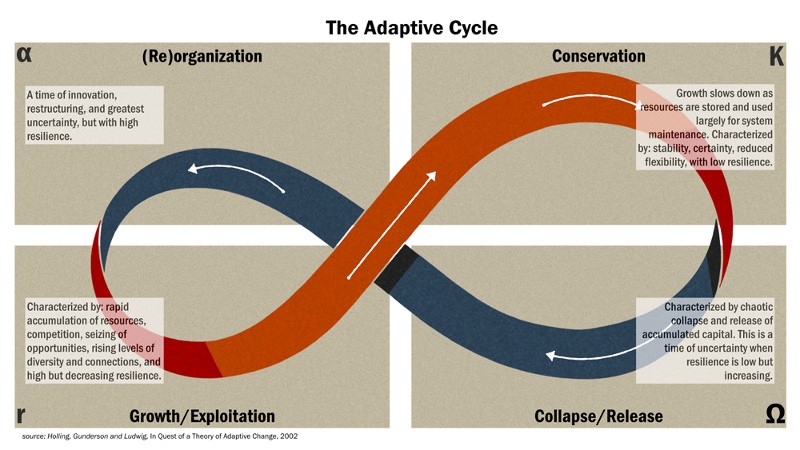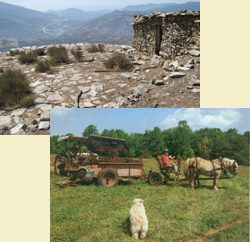« The Peasants Shall Inherit the Earth | Home | The prospect of a new Gothic Age in the US during the decline of the industrial era »
An ecology of social systems
By Karl North | September 19, 2018
This essay consists of a condensation of insights from Heinberg’s three-part article, “Human Predators, Human Prey”, and a partial reinterpretation.
Two types of hierarchical relations are evident in ecosystemic predator/prey relations :
- Functional as in population regulation, a problem-solving relation that benefits the entire ecosystem as predators keep prey populations in check throughout the ecosystem food web. Predation also stimulates adaptations in prey populations – such as antibody production against bacterial infection – that improve the survival capacity of prey populations, and thus aid the resilience of the whole ecosystem.
- Exploitative as in food/energy source, benefiting one species over another as predators consume prey as food..
These two types of hierarchy appear in social systems. Social hierarchies arise to efficiently serve different social functions. For example, ruler control of surpluses via taxation serves as ‘antibody formation’ against external raiders and failed harvests. Similarly, the inherent criminality in social systems is a low degree of predatory parasitism that stimulates immune functions – antibody formation like law and police.
Domestication of animals, with both functional and exploitative aspects, has served to justify ‘domestication’ of some human groups by others – slavery, wage slavery, debt peonage – which usually becomes justified by ideologies of bigotry. As hierarchies become less functional and increasingly exploitative, conflict occurs and the social system evolves in an adaptive cycle.
As subsystems of ecosystems, social systems follow the same dynamics of the adaptive cycle, as demonstrated in the rise and fall of civilizations:
Industrial society evolved in an ‘r’ phase of accelerated growth due to the one-time bonanza of fossil energy:
This civilization is now at the end of its K or conservation phase and is showing signs of decomposition – the Ω phase of collapse and reorganization.
The K or conservation phase in the imperial core is being prolonged by several props: debt, military superiority, economic advantage of the dollar reserve currency and the inertia inherent in generations of a culture of mass deception. Interest-bearing debt has become a primary prop and means of enslavement whereby a financial class exploits everyone and ultimately plunders younger generations to benefit core populations at least for a time.
In the Ω phase of collapse and release that industrial civilization is entering, the functional role of elites – maintaining social order – gives way to increased parasitism as elites become more criminal than ever, thus eventually breaking down the social order. In response, collapse is accelerated as rebels multiply – like parasitic disease organisms. As the social order breaks down, release from it restores liberty to experiment with other social forms: relocalization, partial or pure gift economies, interest-free credit/investment, participatory democracy, policies of resource use limited to refresh rate. This corresponds to the α or reorganization phase of the adaptive cycle.
Topics: Political and Economic Organization, Uncategorized | No Comments »


